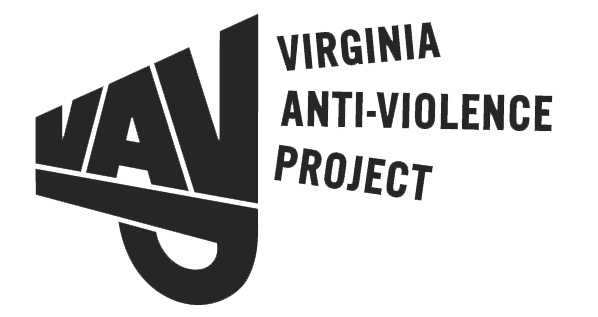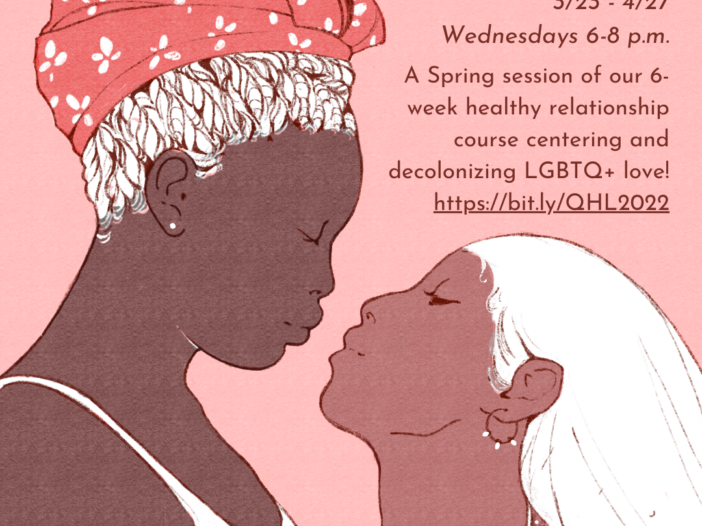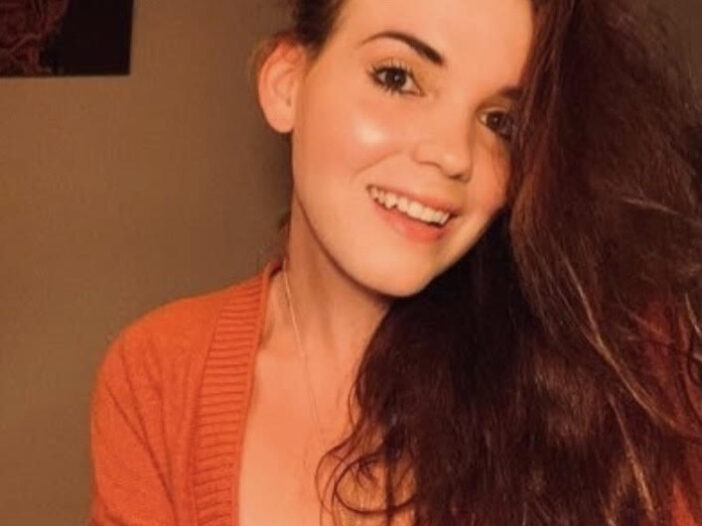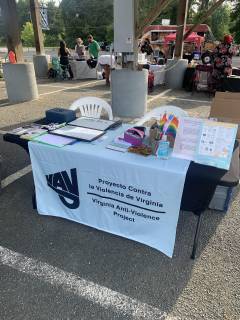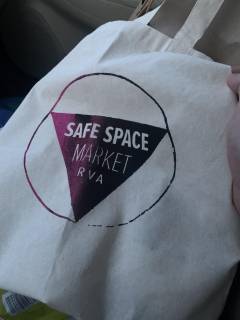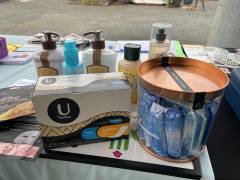| – written by Serena Truong, VAVP communications intern April is Sexual Assault Awareness Month. Sexual assault includes any unwanted sexual contact, use of sexual images, or words. It is never the victim’s fault, no matter what they were doing or wearing. In a statewide survey of adults in Virginia, 1 in 4 women and 1 in 5 men said they had been sexually victimized as children. Over half (51%) of women experienced sexual assault before the age of 13, as did 39% of men, according to a brochure by Virginia Sexual & Domestic Violence Action Alliance Child Advocacy Task Force. LGBTQ survivors are often mistreated or misunderstood by law enforcement if they try to report, & are often turned away from services meant to assist the survivor. Oftentimes the perpetrator was someone the survivor knew beforehand. Some common reactions after sexual assault include self-blame, denial, substance abuse, and nightmares/flashbacks of the incident. Any and all reactions are a valid part of a survivor’s healing journey. Green flags when discussing SA with healthcare/service providers, family, and friends: – Listening and showing compassion without judgment – Directing the survivor to local resources – Allowing the survivor autonomy & control over what happens next – Maintaining the survivor’s confidentiality – Validating a survivor’s gender identity and pronouns Red flags when discussing SA with healthcare/service providers, family, and friends: – Asking about the survivor’s victimization when others are around – Using the term “rape,” as some survivors may not label their experience as such – Only asking about specific types of violence or recent violence – Expressing value judgments – Misgendering or belittling one’s gender identity during the course of the discussion There is no wrong way to heal after sexual trauma. Survivors are never at fault, and are not obligated to report to the police, especially those who’ve had previous negative experiences with law enforcement. National resources for people of color: https://sisterslead.org/ – National organization serving to end sexual assault for BIPOC survivors. VAVP’s LGBTQ resources and info: https://virginiaavp.org/wp-content/uploads/2022/02/LGBTQ-Sexual-Assault-Awareness-1.pdf Other resources: https://www.nsvrc.org/sites/default/files/publications/2020-04/friends_and_family_guide_final.pdf |
Queer Healthy Love is Returning for Spring!
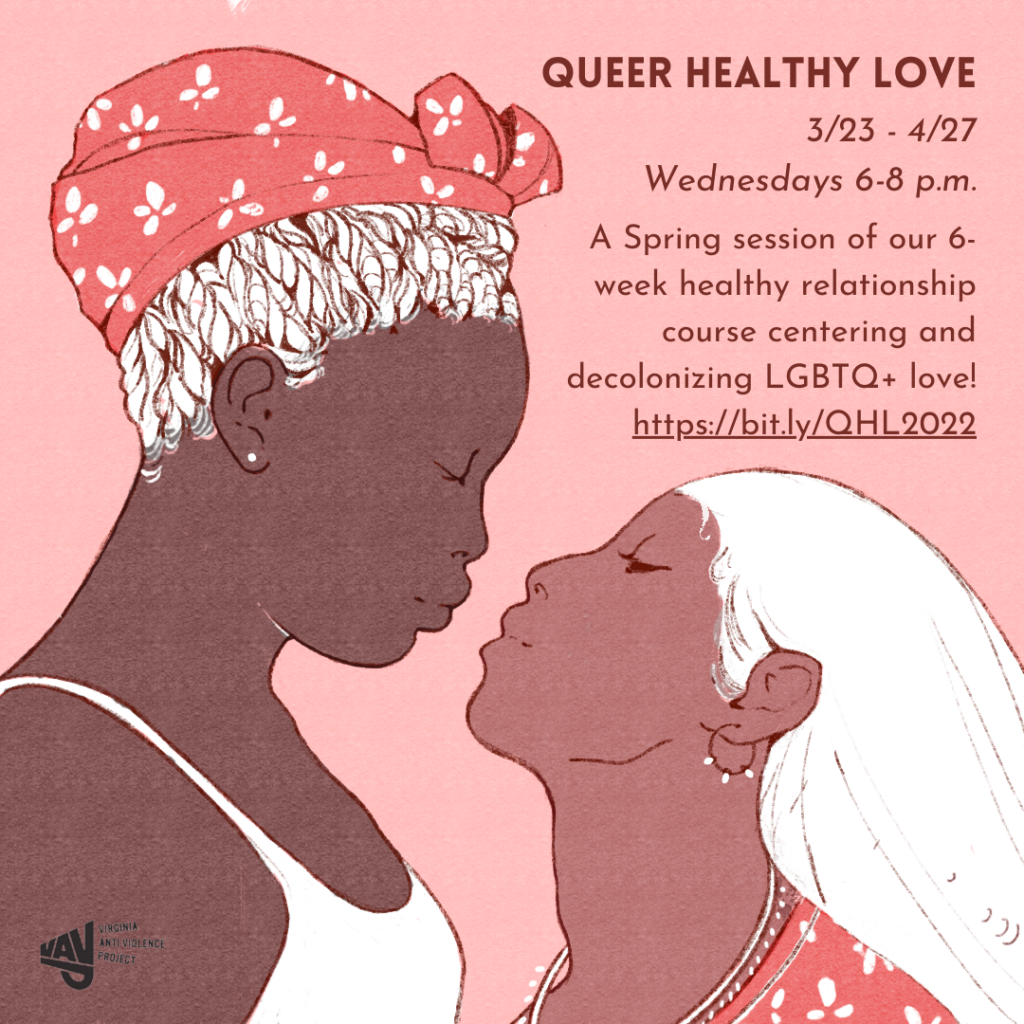
Our 6 week healthy relationship building class, Queer Healthy Love, is returning for a Spring session! Join our advocacy team weekly from March 23rd through April 27th on Wednesdays, 6-8 p.m. EST for powerful sessions discussing love, sexuality, and decolonialism. Registration can be found at bit.ly/QHL2022 !
FAQ
What exactly is QHL?
Queer Healthy Love is a 6 part healthy relationship building course hosted and created by the Virginia Anti-Violence Project. It is one of our longest running projects, and is reflective of the values we hold as an organization and in our direct advocacy work. It centers LGBTQ+ love, and teaches participants how to navigate relationships in a decolonial way.
What does “decolonial” mean? What does it mean for love to be decolonized?
Decolonial refers to the process of dismantling systems that were constructed by political, religious, ethnic, and social colonialism. For many cultures prior to colonization, love and sexuality was something to be discussed openly and without shame. For us, decolonizing love means getting back to that place of mutual respect, communication, and honesty about our relationships and bodies.
Do I have to come to all 6 sessions?
Yes, we encourage you only to register if you are able to attend all 6 sessions (emergencies notwithstanding). We do recognize that this is a large time commitment, but it is very important to the overall success of the course. Not only will you be building an environment of trust with your classmates, but each week will also build on the last for a cohesive structure.
What accessibility measures are available?
Accessibility and language/disability justice are important to VAVP. If there are access needs important to you, please note so on the registration form and we will do our best to provide for you. This includes language interpretation (including ASL), requesting large print handouts, etc.
A Personal Reflection by Kristina Konwerski
Kristina Konwerski (she/her) is a Richmond-based writer who often writes about her thoughts about transgender issues. You can follow more of her work by subscribing to her Substack newsletter at kristinakonwerski.substack.com, or her instagram @kristinatsarina.
Last year had been filled with the most anti-transgender legislation this country has ever seen. House bills are being proposed in over half the country that would ban or limit gender affirming care for transgender youth, and ban transgender youth from participating on sports teams that align with their gender identity. Being aware of transgender issues and the attacks on the transgender community is more important than ever before. These bills are meant for one sole purpose, and that is to eliminate transgender people from society. They are meant to exclude, discriminate, and erase trans identities. I wanted to share this with you all because unfortunately it is not getting enough media attention. The lives of transgender people should not be a political issue.
I began transitioning over six years ago, and my life has changed tremendously for the better in ways I never thought imaginable. When I was younger, I thought I would never find love, I feared my anxiety would never subside, and I anguished over the possibility of never loving myself. When I finally began to take my life back, life brought me everything I dreamed of, and I could not be in a better place. These bills are telling young people who are trying to find themselves that this life is not possible, and that there is something wrong with those who don’t simply accept what society has placed upon them without their consent.
Transgender people face obstacles that are often not thought of or talked about. We spend copious amounts of money on rebranding ourselves with ways to alter our appearance to feel more comfortable, we have to face discrimination from employers when looking for jobs, we have to fear for our lives on a daily basis when going out in public and potentially being “clocked,” and we often wonder whether or not we will ever find someone that will love of us simply for being ourselves. Trans people are constantly fighting to prove that we are not a threat, and that what we want more than anything is acceptance.
Each year the number of trans people killed continues to increase, and as of now this year there have been 44 confirmed deaths of trans and gender non-conforming people. Acts of violence committed against us stem from many reasons, but one that I strongly feel is a cause is the way that transgender people have been portrayed in media over the past several years. I want to recommend that you all watch the Netflix documentary film Disclosure, which discusses trans representation in media. Watching this film in addition to spreading awareness about the anti-trans legislation in this country is one way to be an ally. I am fortunate to have made it this far, and with your understanding and acceptance, maybe one day trans people will feel a little bit safer and more accepted.
Latinx Community and Mental Health
Violeta Rodriguez is a VCU student majoring in Spanish. During her time at Reynolds Community College, she was involved in the Pathways program and was part of the Mellon Research Fellows. For her research project, she created a podcast talking about Mental Health for the Latinx Community. We spoke with Violeta and her experiences with finding different resources in Richmond, VA.
Interviewed and written by Serena Truong, Intern at VAVP
What was it like finding mental health resources in Richmond for the Latinx community?
During my research with the Mellon Pathways Program, I was starting to get frustrated, because I thought I wasn’t looking hard enough. It turned out there weren’t enough resources around the Richmond area, especially the ones that would speak Spanish or that were bilingual.
Are there specific accommodations for individual ethnicities?
We’re really all just grouped into one large pool. The only specifications I have seen is their religious culture, because I know that can be very important when talking to the Hispanic community. If the person wasn’t religious, they would still be grouped together however they wouldn’t bring it up and only focus on the bilingual aspect.
Were there any resources specifically for LGBTQ People?
I did not see any counselors that spoke Spanish and had the LGBTQ certification; it was either one or the other. The LGBTQ community needs somebody to talk to and can understand Spanish. That’s another thing we have to add to our list in Richmond.
Have you found low-cost options?
I had one recommendation for a counselor that offered low-cost pricing for her services but she didn’t speak Spanish. I haven’t done much digging in terms of pricing. It’s more difficult to find counselors or psychologists that will give a cash rate, because I know the majority of them do take health insurance and with the Latinx community, it can be difficult to get health insurance for them.
What did you think about doing translation for your mom when you were younger?
It was considered normal to me and my siblings to be translating documents and translating appointments and phone calls for our mom. As a child, I never saw it as a responsibility until I got much older that I realized how big of a task that is for children.
What is the culture like surrounding mental health growing up in the Latinx community?
It’s very taboo. It’s something we never spoke about or that was ever brought up. If you were experiencing some type of sadness, your parents would tell you to push those emotions to the side. They never sat down to talk to you about it. It’s a culture thing and it’s been around for generations. As my parents are getting older, they’re starting to understand what I’ve been trying to communicate with them about mental health. My mother recently got diagnosed with anxiety and depression. She asked me about it to help her understand it, but then later backtracked and was like “Oh, no, the doctor is crazy. I don’t think I need any of this. I can deal with this on my own.” It’s something that has never been spoken about in our culture and it needs to be. I think the younger generation needs to step in with their parents and really talk about it. It can be difficult conversation but it needs to be done.
How did your podcast start and any future plans?
It was the best medium to share my information and doing a podcast was something that I always wanted to learn how to do. Doing the podcast made me learn so much about myself and about Richmond. I want to talk about the progress of mental health resources. If there’s any new resources, I would like to interview the people involved. I want to keep it specifically for Richmond for the Latinx community as a resource. I was thinking about doing the episodes in Spanish and either translating them into English or having an English transcript, but I do want most of the episodes in Spanish so they can have access to them as well. In the future, I will make a website, if I could find someone who would help me out with the layout so I can have all the resources written down.
Is there any place or organization that you want to shout out?
I definitely want to shout out Sacred Heart Center. That place has a place in my heart for sure. That is one place they welcome anybody in the Latinx community, they don’t care where you came from and they treat you like family there. The first time I went in there just to volunteer, I already felt so welcomed. It felt like I was back at home. They talk with you if you have any questions about anything. They had told me as well that if they needed help with mental health resources, they would try to help them as much as they can, like if the counselor is far away or if the person needs transportation. They teach the Hispanic community here in Richmond how to speak English. They also have childcare services, cultural events, donation drives, and food pantries. I really want to get back to working with them because it holds a very special place in my heart. They do so much for the community.
What are some ways communities and organizations can improve the Latinx community in mental health?
There needs to be more Hispanic people that are willing to help out, especially the younger generation. That’s why I got into foreign language. I saw my mom struggle with being able to communicate with just doctors, I had to do the translation as a child. I would like to see more bilingual or first generation college students help out translating and working with other psychologists or becoming a psychologist and offering that bilingual aspect to help them with their mental health. There’s a lot of work that needs to be done in Richmond. I did an interview with the Director of Sacred Heart Center and she’s been working with the Hispanic community with Richmond for many years and she said that resources are improving in Richmond, but very slowly. Once I graduate, I want to help that movement more so it can move a bit quicker.
Check out Violeta’s podcast here: https://anchor.fm/latinxmindrva
Fashion for a Cause
Serena Truong, Intern
A Better Day Than Yesterday Initiative Program hosted A New Me Fashion Show on October 9 in Richmond, Virginia. A Better Day helps bring incarcerated individuals back to society. The fashion show gave makeovers to returning citizens and their families as a form of empowerment. It was an intimate gathering with lively music and all around joyous energy in the small room in the Queen Bee & Co. lounge (21 W Main St, Richmond, VA 23220).
Founder LeTeisha Gordon created the organization in 2016 after her own experience struggling to communicate with her incarcerated father. Now she gets to share her story and help others.
Thomas Mundy, a returning citizen, was incarcerated for 13 years. Since his release, he has worked as a peer support specialist and now is a small business owner. He works to change the public’s perception of incarcerated people.
“The public needs to view us as non-threatening and I feel like this goes a long way to normalize us,” Mundy said.
Visit their website to keep updated with other events they do.
VAVP Supply Drive at the 8/6 Safe Space Market RVA
On Friday, August 8th, VAVP was invited by the folx at Safe Space Market RVA to participate in their weekly Farmers Market by holding a supply drive! The event ran from 5-8 p.m., and was located at the Lakeside Farmers Market pavilion. We were honored to share the space with numerous local vendors focused around the values of Queer/BIPOC liberation, sustainability, and community organizing!
Pictured above is but a small fraction of the various goods and supplies that members of the community gave to us. Donations ranged from hygiene & menstrual products, pre-packaged and non-perishable food, gift cards and GRTC Bus Cards, socks, toys, self-care items, cash, and more. We were truly humbled by the turnout and generosity of the community! All donations and proceeds will be distributed out to our current and future clients, vital work that would not be possible if not for the support you all show for VAVP and our mission.
Missed us the first time but would still like to donate supplies/just hang out with us? Good news! The supply drive with Safe Space Market RVA has a part 2, which will be held once again at Lakeside Farmers Market on the 20th of August, 5-8 p.m. We would love to see you there. Thank you again to everyone who turned out and donated!
